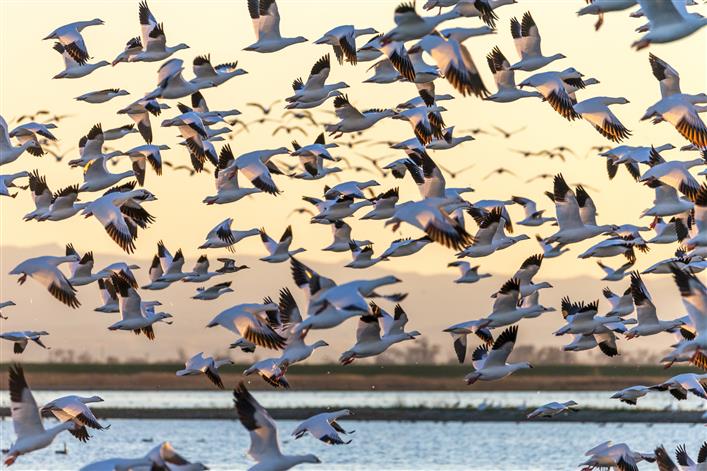
As the wetlands in Kashmir valley are witnessing the arrival of Migratory Birds, a renowned birdwatcher on Wednesday said eight new species graced the valley this year.
Speaking to the news agency—Kashmir News Observer (KNO), Reyan Sofi said this year, the valley welcomed eight new bird species.
He listed the eight new bird species observed in Kashmir this year: Falcated Duck at Hokersar Wetland, Smew Duck at Wular Lake, Horned Grebe at Wular Lake, Northern Wheatear at Pahalgam, Western Reef-Heron at Wular Lake, Long-tailed Duck at Wular Lake, and the Broad-billed Sandpiper, also sighted at Wular Lake.
“Most of the new bird species were spotted at Wular Lake, the second-largest freshwater lake in Asia,” Sofi added.
Parvaiz Yousuf, Director of the Wetland Research Centre at the Wildlife Conservation Fund in Kashmir, told KNO that migratory birds primarily use the Central Asian flyways to reach Kashmir and avoid extreme cold weather conditions.
“Because of extremely cold weather, a thick layer of ice forms, making food unavailable for birds in the environment, then the birds travel thousands of kilometres to places like Kashmir, where it’s less cold, and food is accessible,” he said.
Yousuf said the birds begin arriving in Kashmir in late October and initiate reverse migration from the Valley in early May using the same route. “Few species, such as Mallard, remain in Kashmir throughout the year,” he added.
Ifshan Dewan, Wildlife Warden, Wetlands Kashmir said these birds come to Kashmir every winter from places like Siberia, Northern Europe, and Central Asian Countries, where temperatures are low. She said wetlands are a major attraction for these birds as they serve as their habitat.
Regarding freezing conditions, Dewan said if the water body freezes, artificial feed is provided. “But these birds primarily rely on natural food,” she said.
Addressing poaching concerns, Ifshan urged people to recognise these birds as guests and cooperate with the department to ensure their safety in the wetlands of Kashmir—(KNO)
